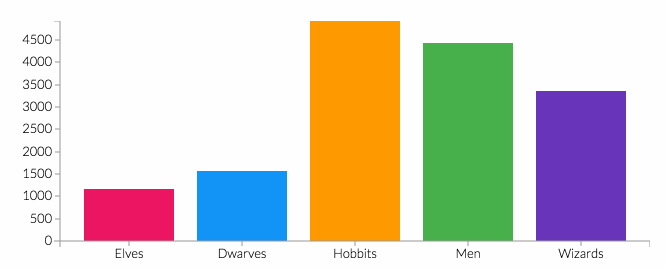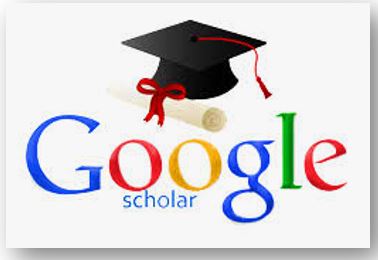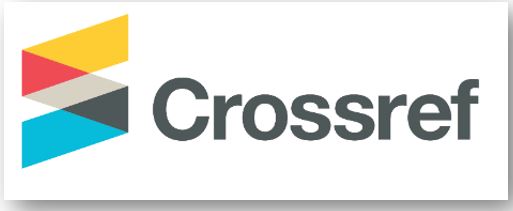Pendidik Islam dalam Kajian Surat Ali Imron Ayat 164
DOI:
https://doi.org/10.61231/jie.v3i1.371Keywords:
Guru, Pembimbing, PenuntunAbstract
The purpose of this research is to describe the role and duties of educators from the perspective of Surah Al-Imran, verse 164. The research method is library research. This research focuses on the study of Surah Al-Imran verse 164. The researcher conducted an analysis of the content of the verse and presented a detailed description. The research findings indicate that educators must be able to play the roles of a teacher (muallim), instructor (mudarris), guide (murabbi), disciplinarian (muaddib), and mentor (mursyid). for the students
References
Abdullah, A. S. (n.d.). Educational Theory A Qur’anic Outlook, terj. Teori-teori Pendidikan dalam Al-Quran, terj. M. Arifin2007. PT Rineka Cipta, 2007.
Ahmad Mustafa Al-Maraghi. (1989). terjemahan Bahrun Abubakar dan Hery Noer Ali, Terjemah Tafsir Al- Maraghi. Toha Putra: Semarang.
Al-Hawary, S. I. S., Kumar, T., Pallathadka, H., Alshahrani, S. H., Al-Tamimi, H. A. N. M., Muda, I., & Singer, N. (2023). The education of children in an Islamic family based on the Holy Qur’an. HTS Teologiese Studies / Theological Studies, 79(2). https://doi.org/10.4102/hts.v79i2.8273
Ash-Shiddieqy, H. (n.d.). Tafsir Al-Qur’anul Majid An-Nur. Cakrawala Publishing.
Baihaqy, M. H. (2021). The Integration of Quranic Spiritual Knowledge in Brunei Darussalam’s Science Education Curriculum. In International and Development Education (pp. 285–304). Palgrave Macmillan. https://doi.org/10.1007/978-3-030-77119-5_14
Chamidah, N. (2015). Konsep tujuan pendidikan Islam dalam al-Qur’an (analisis tafsir QS. Al-Baqarah: 151, QS. Ali‘Imran: 164, dan QS. Al-Jumu’ah: 2). Null. https://doi.org/null
Departemen Agama RI. (2005). al-Qur’an Mushaf dan al-Qur’an Terjemah. Al Huda.
Echols, Jhon M, H. S. (2006). Kamus Inggris Indonesia. Gramedia.
Ghaffari, A., & Yousefi, D. (2022). Islamic Teacher Professionalism: The Role of Family and Society in Teacher Professionalisation. In Supporting Modern Teaching in Islamic Schools: Pedagogical Best Practice for Teachers (pp. 135–145). Taylor and Francis. https://doi.org/10.4324/9781003193432-13
Ghani, M. Z. A., & Sahrin, S. (2019). The capacity of islamic education teachers as al-muaddib: A systematic review. International Journal of Advanced Science and Technology, 28(16), 401–409. https://www.scopus.com/inward/record.uri?eid=2-s2.0-85080067162&partnerID=40&md5=8348d1c4eb457054bce0908a0d4421f5
Haris, Z., Kassim, M. K. A., Yusof, A., & Kassim, N. A. (2011). Teaching methods for islamic education post graduate diploma in teaching primary school in Malaysia. 2011 IEEE Colloquium on Humanities, Science and Engineering, CHUSER 2011, 294–299. https://doi.org/10.1109/CHUSER.2011.6163737
Huda, M., Yusuf, J. B., Azmi Jasmi, K., & Nasir Zakaria, G. (2016). Al-Zarn?j?’s Concept of Knowledge (‘Ilm). SAGE Open, 6(3). https://doi.org/10.1177/2158244016666885
Khasawneh, O. M., & Altakhaineh, A. R. M. (2020). Teacher education from an Islamic perspective. International Journal of Religion and Spirituality in Society, 10(3), 1–16. https://doi.org/10.18848/2154-8633/CGP/V10I03/1-16
Kurniawan, S. (2017). Filsafat Pendidikan Islam (Kajian Filosofis Pendidikan Islam Berdasarkan Telaah Atas Al-Quran, Hadits, dan Pemikiran Ahli Pendidikan). Madani.
Mahmudah, K. N. L. (2020). Paradigma Pendidikan Islam dalam Perspektif Tafsir Surat Al-Baqarah Ayat 129 dan 151. Null. https://doi.org/10.26618/jtw.v5i02.3135
Manurung, P., Saragih, A. H., & Hasibuan, P. (2024). A Study of the Philosophy of Education and Analysis of the Principles of Implementing Education according to the Al-Qur’an. Pharos Journal of Theology, 105(2), 1–13. https://doi.org/10.46222/pharosjot.105.28
Marimba, A. D. (1989). Pengantar Filsafat Pendidikan Islam. Al Ma‘arif.
Muhaimin. (2005). Pengembangan Kurikulum Pendidikan Agama Islam; di Sekolah, Madrasah, dan Perguruan Tinggi,. Rajawali Press.
Muhamad, A., Khalil, S. A., Basir, S. A., & Norasid, M. A. (2024). Instilling Islamic Values of Environmental Sustainability Through Experiential Learning: A Case Study of Revealed Knowledge and Natural Phenomena’s Students. Asia Pacific Journal of Educators and Education, 39(2), 219–248. https://doi.org/10.21315/apjee2024.39.2.12
Nata, A. (1997). Filsafat Pendidikan Islam. Logos Wacana Ilmu.
Nawawi, H. (1989). Organisasi Sekolah dan Pengelolaan Kelas. Haji Masagung.
Omar Mohammad At-Toumy Al-Syaibani. (1979). Falsafah pendidikan Islam. Bulan Bintang.
Önder, H. ?. (2023). Ideal Age for Education and Teaching of the Holy Quran. Mutefekkir, 10(20), 441–463. https://doi.org/10.30523/mutefekkir.1405301
Pallathadka, H., Al-Hawary, S. I. S., Muda, I., Surahman, S. H., Al-Salami, A. A. A., & Nasimova, Z. (2023). The study of Islamic teachings in education: With an emphasis on behavioural gentleness. HTS Teologiese Studies / Theological Studies, 79(1). https://doi.org/10.4102/hts.v79i1.8193
Poerwadarminta, W. (1991). Kamus Umum Bahasa Indonesia. Balai Pustaka.
Radzol, A. R. M., & Hamzah, N. (2023). Islamization of Engineering Education: A Control Systems Theory Perspective. 2023 IEEE 12th International Conference on Engineering Education, ICEED 2023, 7–12. https://doi.org/10.1109/ICEED59801.2023.10264028
Shah, S. (2013). Islam, education, and gender: Discourses and practices among Pakistani diaspora in the UK. In Gender, Religion and Education in a Chaotic Postmodern World (pp. 241–252). Springer Netherlands. https://doi.org/10.1007/978-94-007-5270-2_16
Stimpson, B., & Calvert, I. (2021). Qur’anic educational philosophy: Foundational principles of education in Islam’s holiest text. Religions, 12(2), 1–17. https://doi.org/10.3390/rel12020082
Suryosubrata. (1983). Beberapa Aspek Dasar Kependidikan. Bina Aksara.
Tafsir, A. (1994). Ilmu Pendidikan dalam Persfektif Islam. Remaja Rosdakarya.
Teungku Muhammad Hasbi Ash-shiddieqy. (2012). Al-Bayan tafsir Penjelas Al-Quranul Karim (1st ed.). Pustaka Rizki Putra.
Downloads
Published
Issue
Section
License
Copyright (c) 2025 Miftachul Ulum, Abdul Mun'im

This work is licensed under a Creative Commons Attribution 4.0 International License.
You are free to:
- Share — copy and redistribute the material in any medium or format for any purpose, even commercially.
- Adapt — remix, transform, and build upon the material for any purpose, even commercially.
- The licensor cannot revoke these freedoms as long as you follow the license terms.
Under the following terms:
- Attribution — You must give appropriate credit , provide a link to the license, and indicate if changes were made . You may do so in any reasonable manner, but not in any way that suggests the licensor endorses you or your use.
- No additional restrictions — You may not apply legal terms or technological measures that legally restrict others from doing anything the license permits.
Notices:
You do not have to comply with the license for elements of the material in the public domain or where your use is permitted by an applicable exception or limitation .
No warranties are given. The license may not give you all of the permissions necessary for your intended use. For example, other rights such as publicity, privacy, or moral rights may limit how you use the material.














